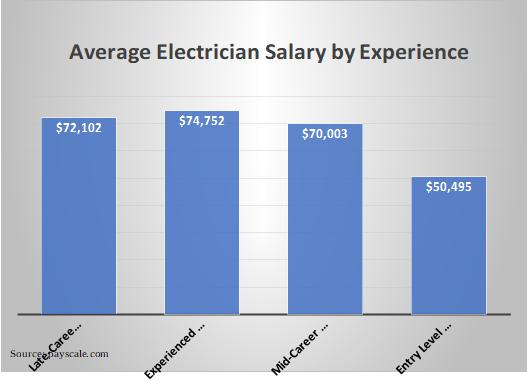The Company Christmas Party — What Are the Employer’s Obligations?

December 10, 2015
Marie Cousineau and Geneviève Beaudin
It’s a Friday night in December. The employees of Party-Hearty Inc. are excited because tonight is their company Christmas party. Management has taken pains to organize a very special evening to show their thanks to the staff for their efforts over the last year. On tap: cocktails, dinner and dancing!
At around 6:00 p.m. the employees arrive at Restaurant ¡Hola! which has been reserved for the evening. Champagne begins to flow and everyone is clearly enjoying themselves.
The evening is now well underway. Tony sees his colleague Annie near the bar and resolves to go over and chat. He’s been secretly in love her for months and decides that tonight he’s finally going to reveal his feelings. He says hello, offers her a drink, then slips his arm around her waist and pats her on the buttocks. Ill at ease, Annie laughs nervously and awkwardly tries to extricate herself from Tony’s grasp. Oblivious, Tony tells her how beautiful she looks tonight and how much he wants to kiss her. He leans in to meet her lips, but instead gets a slap in the face.
This contretemps does not go unnoticed, and Burt intervenes to rescue his colleague Annie. Tony and Burt have words, and then Burt pushes Tony, who falls back and breaks the mirror over the bar, as well as a tray of wine glasses and several bottles of liquor.
Francine, the human resources manager of Party-Hearty Inc., quickly steps in and separates the two protagonists, deciding there and then that the party is over.
Cheryl, another staff member, offers to help clean up the mess caused by the altercation. Unfortunately, she slips on the alcohol-drenched floor and falls, badly injuring herself. She appears to have fractured her hip, so 911 is called and Cheryl is soon off to the hospital in an ambulance.
The evening is clearly a disaster. “What else could go wrong?” Francine wonders. Mercifully, she tells herself, everyone is on their way out and nothing more untoward could happen…
Dan, another employee of Party-Hearty Inc., is anxious to get home. He realizes he has had too much champagne and feels dizzy. He knows he shouldn’t drive home, but soon realizes he has no other options. Restaurant ¡Hola! is in an isolated part of the city, not served by public transit. He tries calling a taxi, but without success (taxis are in high demand on Friday nights in December, due to all the Christmas parties on those evenings). His employer has not bothered to arrange for shuttles or other alternative modes of transport.
Dan takes out his car keys and resolves to drive slowly and carefully. Unfortunately, as he is nearing home, he badly miscalculates a left turn, resulting in a jarring collision with another vehicle. Dan sustains multiple fractures, and the other driver is seriously injured as well. Both vehicles are a total write-off.
On Monday morning, human resources manager Francine arrives at the office and turns on her computer. She then finds that she has received the following documents:
• a harassment complaint from Annie
• a demand letter from Restaurant ¡Hola! claiming $5,000 compensation for the damage caused by Tony and Burt
• a claim from Cheryl for a work-related injury
• an email informing her of Dan’s automobile accident
Obviously distraught, Francine asks herself the following four questions:
1. Do I have to conduct an investigation into the sexual harassment complaint?
Yes! Even though the facts underlying the complaint transpired outside the workplace and after office hours, the employer must conduct an investigation in such circumstances.
As part of the investigation, the employer’s representative will have to meet with the complainant, Annie, the person implicated, Tony, as well as any witnesses to the incident (should Annie and Tony’s versions of events be contradictory).
The purpose of the investigation is to determine whether the conduct complained of fits the definition of harassment under the provincial violence and harassment regulations, i.e.:
• vexatious behaviour in the form of repeated verbal comments, actions or gestures
• that are hostile or unwanted
• that affect an employee’s dignity or psychological or physical integrity
• and result in a harmful work environment
It has been established that even though the offensive behaviour took place outside the workplace, if its effect was to render the work environment harmful, it could constitute harassment under the Act (if the other criteria thereunder are met).
Every employer should have in place a harassment policy informing employees that any type of harassment is unacceptable and explaining their rights and obligations in that regard.
2. Does Cheryl’s work-related injury claim have any chance of success?
There is little likelihood of Cheryl’s claim being allowed by the workers compensation board. Injuries occurring during a company Christmas party or in preparation for it are not typically eligible for compensation because the injury cannot be said to have occurred during or due to work. Because the Christmas party was an event to which the employees were invited but not obliged to attend, Cheryl’s attempt to help out was voluntary and personal.
It is important to note however that the Quebec’s Commission des lésions professionnelles(CLP) has also concluded that a certain employee was indeed injured “in the course of her employment” when taking part in a game during her employer’s Christmas party.* Given the facts of the case, the CLP concluded that the employees’ participation was an integral part of their employment activities.
In Cheryl’s case, even if she cannot be considered to have suffered a work-related injury, she will nevertheless be missing several days of work and will thus be entitled to a sick leave as per labour standards regulations. If her employer has a group insurance plan for its employees, Cheryl could be entitled to disability benefits thereunder as well, provided she meets the eligibility conditions.
3. Is the claim of Restaurant ¡Hola! well founded?
Possibly.
Party-Hearty Inc. could be found liable in two ways.
For example, under Article 1463 of the Civil Code of Québec, an employer can be held liable for harm caused by the fault of its employees in the performance of their duties. In this case however, the company can argue that Tony and Burt were not acting “in the performance of their duties” when they came to blows during the Christmas party. Moreover, even if a court were to come to the opposite conclusion, which is unlikely, under Quebec’s Article 1463 CCQ the employer can recover from the employees in question whatever damages it is ordered to pay by the court.
In our view, however, Party-Hearty Inc. could be liable to the restaurant because of its contractual liability under Article 1458 CCQ. By virtue of having entered into a contract with the restaurant for the holding of its event, Party-Hearty Inc. could be found liable for the property damage and any other damage caused by the altercation between Tony and Burt.
In any event, whether the employer is sued as principal (Article 1463 CCQ) or as co-contractor (Article 1458 CCQ) it has the right to proceed in warranty against the two employees at fault, so that they can be held liable, at least in part, for the damage caused to the restaurant.
Finally, there are definitely grounds for conducting an investigation into the altercation in question, in order that disciplinary sanctions may be imposed on the person or persons at fault.
4. Could the company be sued on account of the road accident?
Quebec’s Automobile Insurance Act creates an automatic no-fault compensation regime for bodily injury sustained in an automobile accident.**
With respect to property damage caused by an automobile, the Automobile Insurance Act provides that the vehicle’s owner is liable, with certain exceptions. As for the driver of the vehicle, he or she is solidarily (jointly and severally) liable for the damage, again subject to certain exceptions. If the automobile involved belonged to Party-Hearty Inc. it could be liable for any damages.
It is thus unlikely, in this instance, that the employer will be sued and found liable for the damage (physical or material) caused by Dan’s car accident.
In any event, an employer who organizes a Christmas party is bound to act as a responsible host, particularly as regards alcohol consumption. The employer must always be mindful of its legal obligations and take appropriate measures to protect the health, safety and dignity of its employees.
To that end, employers are strongly encouraged to take various measures to limit alcohol consumption and ensure their employees get home safely. For example, the employer can
• close the bar a couple of hours before the end of the party
• implement a coupon system for alcoholic beverages
• inform employees, or even offer them, various options for a safe return home, such as designated drivers, a “drive-you-home” service, refundable taxi fares, etc.
• sensitize employees to the importance of consuming alcohol in moderation, etc.
All that having been said, employers are not alone in having such obligations, and employees should also be aware of theirs, and act responsibly!
Conclusion
While some may think that organizing a Christmas party involves only social considerations, it is evident from the foregoing that party organizers must take into account several aspects connected to the employer’s legal obligations. By keeping those obligations in mind, your efforts to organize a successful and liability-free party are likely to bear fruit.
On that note, we wish you a very successful Christmas party!
Marie Cousineau is a partner and Geneviève Beaudin is a lawyer with LangloisKronström Desjardins, one of the largest law firms in Quebec with more than 100 professionals working in offices in Montréal and Quebec City. Check out this article on the LangloisKronström Desjardinswebsite: www.lkd.ca/company-christmas-party-employers-obligations/.
* See, for example, Fafard v. Commission scolaire des Trois-Lacs, 2014 QCCLP 6156
** By contrast, if an individual is entitled to benefits or monetary compensation under, for example, the Act respecting Industrial Accidents and Occupational Diseases, he or she must submit a claim.















